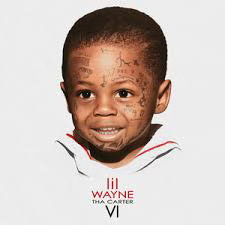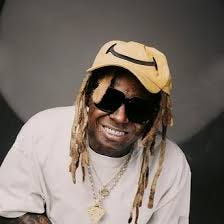Wayne’s World: Tha Carter VI Is a Victory Lap
Lil Wayne isn’t chasing trends, he’s reminding a new generation who set them.
After 14 studio albums, King Carter, better known as Lil Wayne, reminds the world once again why he's one of the greatest rappers alive with Tha Carter VI. While his last full-length project, Funeral, dropped in 2020, it’s been seven years since the New Orleans legend added a new chapter to his iconic Carter series.
Known for his witty bars and inventive wordplay, Wayne uses each Carter album to pull back the curtain and reveal more of the man behind the myth. Tha Carter VI follows that tradition, but now through the lens of a certified legend with nothing left to prove
A Tracklist That Tells a Story
With standout tracks like “Welcome to Tha Carter” and “Banned from NO,” and the surprising “If I Played the Guitar,” the album balances punchline-packed verses with moments of raw vulnerability and reflection. The production is bolder than ever, moving effortlessly through styles, from acoustic melodies to soul-infused instrumentals to traditional Hip-Hop beats.
There’s a playful ease throughout, especially on tracks like “The Days” featuring Bono, where it’s clear Wayne no longer needs to prove himself. Yet he never wastes a bar, using this moment to explore the world around him and reflect on all that he’s become with lines like:
“If my days are numbered, treat every day like day one.”
While there are no new collaborations with his Young Money peers, the features on this project still go crazy. “Alone in the Studio With My Gun,” featuring MGK and Kodak Black, is deeply personal, especially for artists and writers who understand how the studio can be both a creative sanctuary and a place where you have to keep your guard up, even in your most vulnerable state.
The collaboration between Wayne, Jelly Roll, and Big Sean on “Sharks” was unexpected, but necessary. The track is a masterclass in cohesion, with all three artists sticking to a central theme from beginning to end, which feels rare in an era where so many verses drift off into unrelated flexes
.
The album closes with “Written History,” a true reflection of how far Wayne has come, both in his career and in life. It’s easily one of the strongest tracks on the album. Between a smooth opener like “King Carter” and an outro that begins with a speech from the great Muhammad Ali, it’s clear that Wayne still understands the art of a cohesive body of work.
In today’s digital age, where quick, viral hits often masquerade as full-length projects, it’s easy for albums to feel more like playlists or mixtapes. But veterans like Lil Wayne continue to defy that model, reminding us there’s still value in thoughtful structure, intentional storytelling and true artistry.
In 2008, Tha Carter III gave us “A Milli” and “Lollipop,” songs that shaped every Zillennial’s perspective on Hip-Hop. It was followed by Tha Carter IV, where tracks like “6 Foot 7 Foot” and “How to Love” showcased Wayne’s versatility and reminded the world that rap artists don’t have to be one-dimensional.
Now, Tha Carter VI follows that same blueprint, but through the lens of a man who’s already solidified his place in the Rap Hall of Fame.




